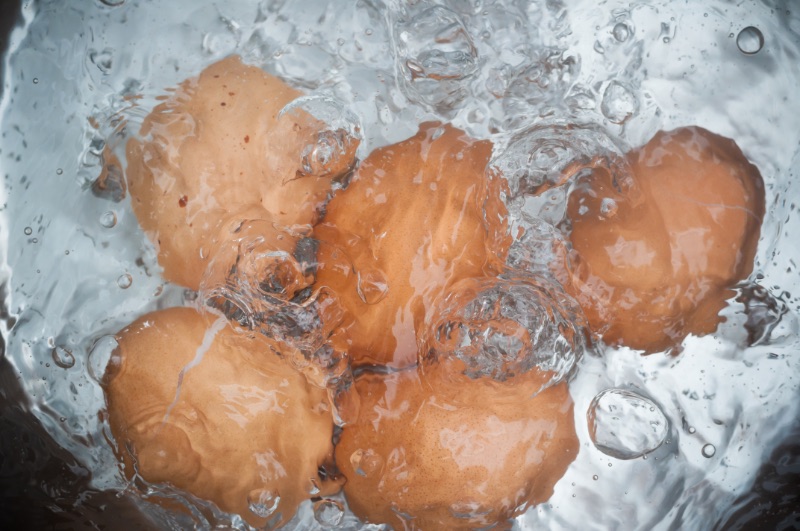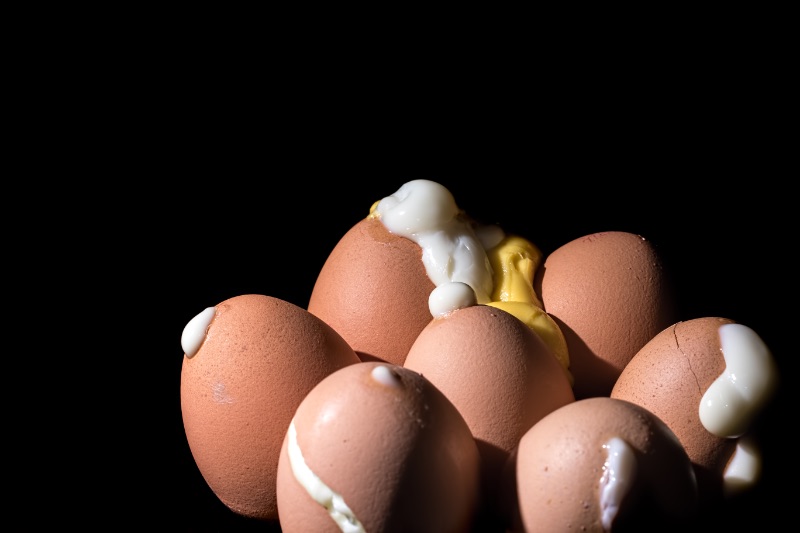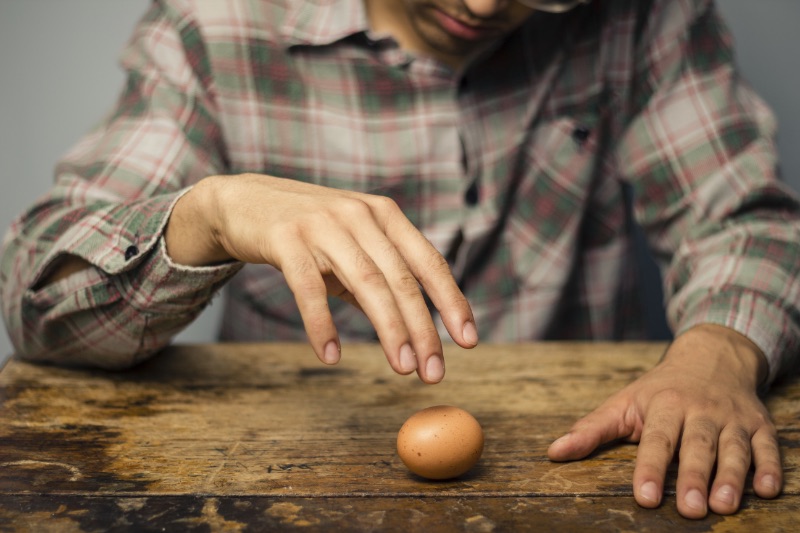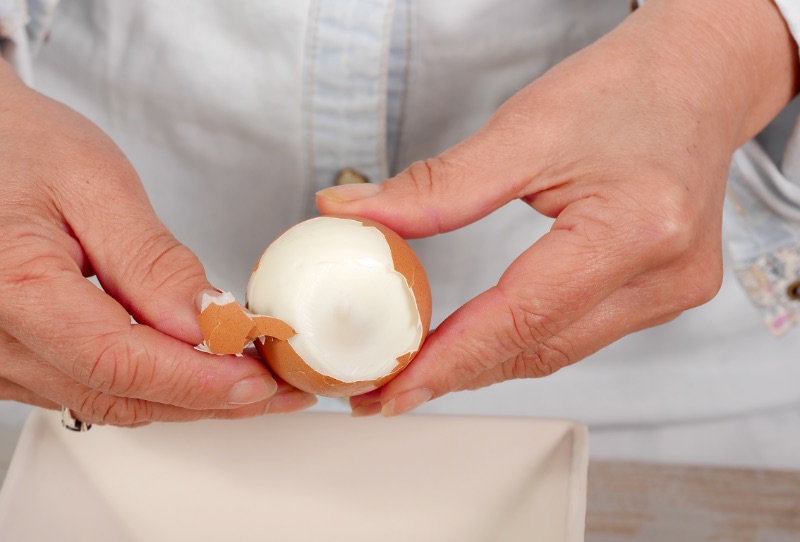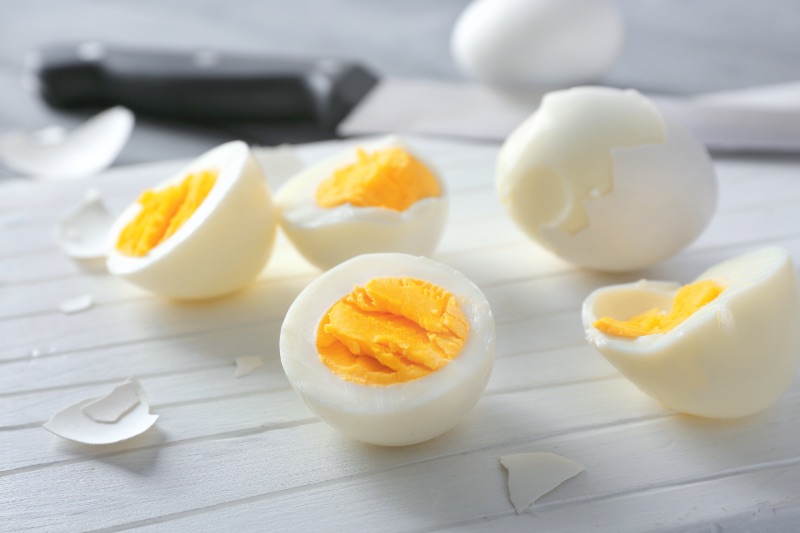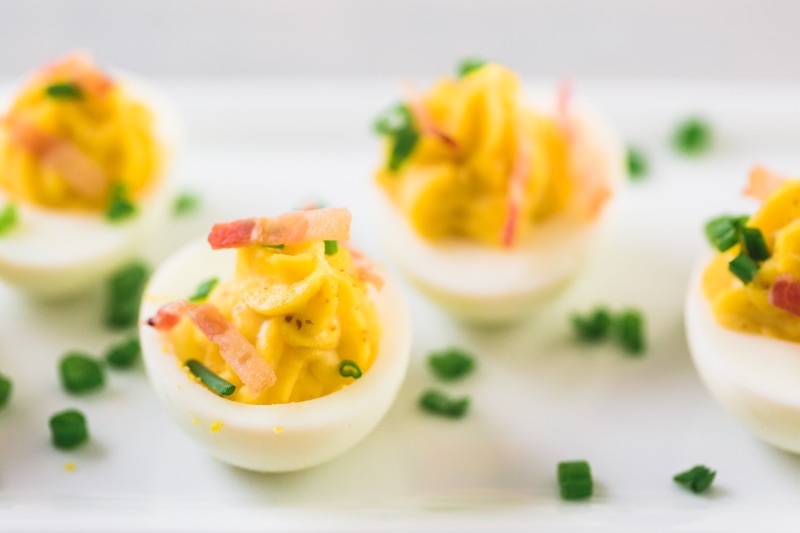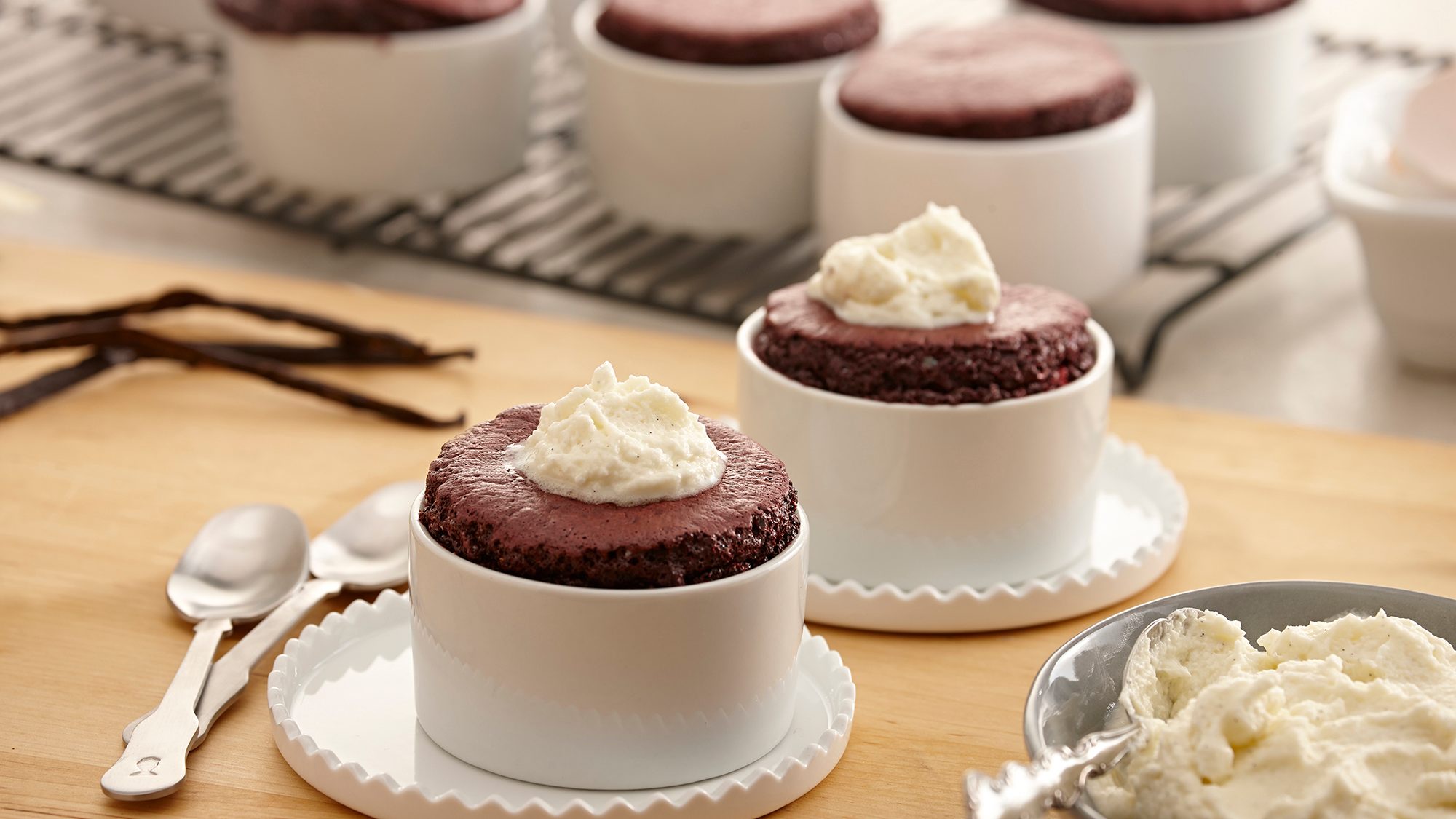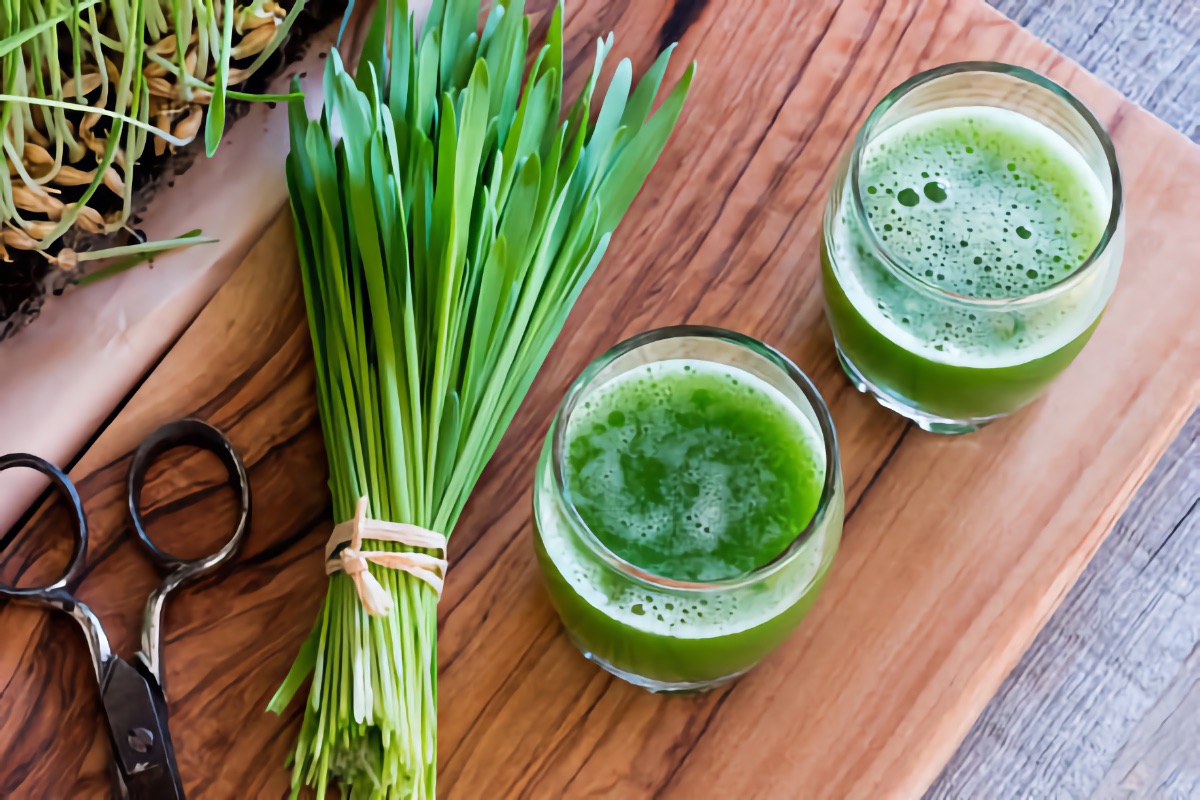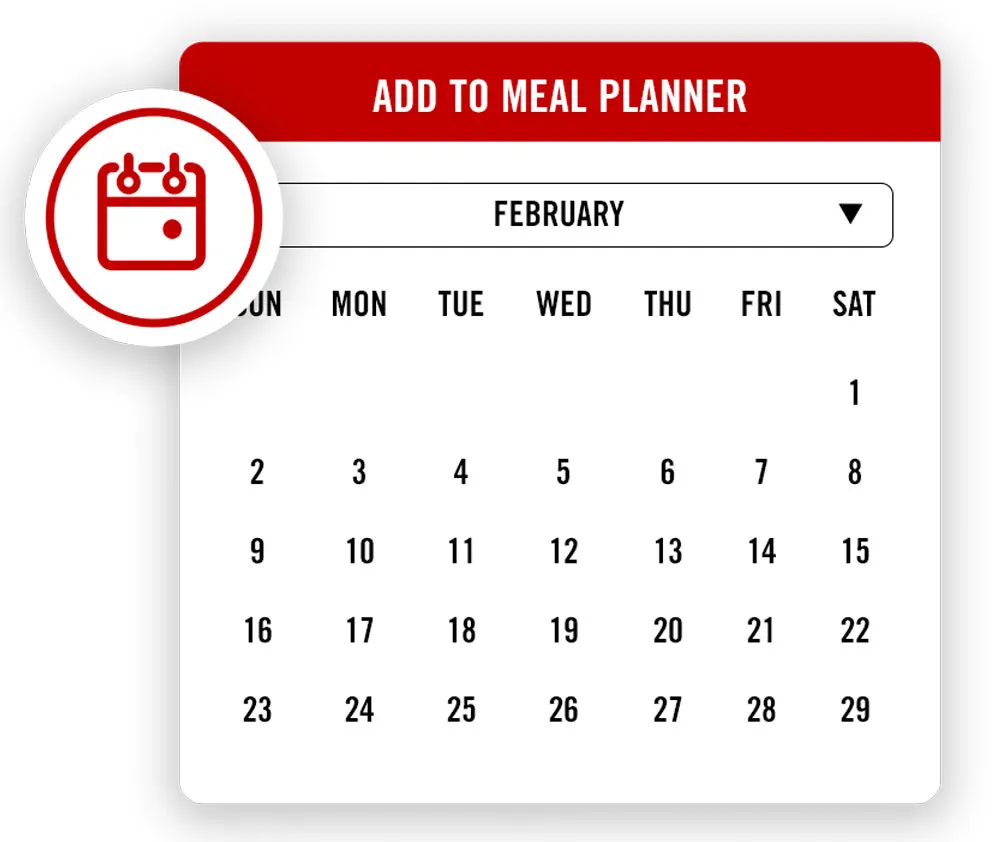It’s a staple in every home refrigerator: hard-boiled eggs are delicious, satisfying, and easy to eat. But while the ingredients may be simple—one egg, one pot, and some water—hard-boiled eggs are harder than they may seem to get right. Here are a few tips and tricks that will help you boil eggs like a pro.
Get Your Water Right
Water is the most important ingredient, other than the egg, of course, when it comes to making the perfect oval snack. Start off right by filling your pot with just the right amount of water—enough to fully cover the top of your egg. When it comes to temperature, a debate has raged for decades over whether to add the eggs when the water is cold or to wait for it to come to a boil. While the former approach has long been held as the conventional wisdom, many culinary experts now agree that gently dropping your eggs into a pot that is already boiling is the way to go. Plus, it will help you with the peeling process.
Avoid Cracked Shells
One of the most frustrating fails when it comes to boiling an egg is looking in the pot and realizing that the whites are leaking out. So, how do you boil eggs without cracking the shell? One way to stop your eggs from cracking is to remove them from the refrigerator a few minutes before game time and let them warm to room temperature. While that is the simplest way to prevent cracks, some cooks prefer to make a tiny hole in the bottom of the egg using a thumbtack to help disperse the natural air bubble there that can sometimes pop.
How Long to Boil Eggs - Determine When Your Egg is Done
How can you tell if an egg is boiled? Determining when your egg is properly cooked can be both fun and effective. To ensure that your hard-boiled egg has reached the perfect yolk density, remove it from the pot, place it on a flat surface, and give it a little spin. If the egg stays in one spot and spins evenly, it is thoroughly cooked. You can cook it to your taste preference:
• 4 minutes will give you a soft-boiled egg - perfect for spoons
• 8 minutes will be when the yolk has just about set
• 14 minutes you'll have a crumbly hard-boiled yolk
Know How to Peel Hard-Boiled Eggs Like a Pro
Hard-boiled eggs are delicious, but they can be a hassle to peel. One way to help prevent a shell that flecks and sticks is to get things right from the beginning. Follow these two simple steps:
1. Add your eggs to boiling water and cook to your satisfaction
2. Move your eggs from the boiling water directly into an ice water bath to ensure that the shells separate cleanly from the firm egg whites
Learn How to Store Hard-Boiled Eggs to Save Some for Later
Hard-boiled eggs are the perfect food item to keep around the kitchen—and an easy one, too, as they can be stored for up to one week in the refrigerator. To keep your eggs fresh, don’t peel them until you are ready to eat, and make sure you move your freshly cooked eggs into the refrigerator as soon as possible (and at the very most, within two hours of cooking).
Whip Up Some Tasty Treats with These Hard-Boiled Egg Recipes
If you’re making a big batch of hard-boiled eggs, you will certainly have more than you can possibly snack on. Luckily, there are many tasty ways to use your leftovers.
• Homemade egg salad recipe – Delicious and versatile—you can throw it in a sandwich, on top of a salad, or just eat it plain
• Deviled eggs recipe – The favorite southern party food—deviled eggs are always a classic. Here's how to make deviled eggs:
• Curried egg salad recipe – Makes for an amazing sandwich
• Dill deviled eggs recipe – Add a twist to the classic deviled eggs recipe with this easy variation
Alternatively, you can always keep things simple and cut up your extra eggs to use as a topping on everything from ramen dishes and stir-fries to toast.
Whatever you choose to do with them, you can't go wrong by keeping a batch of perfectly boiled eggs ready in the fridge.
![]()



